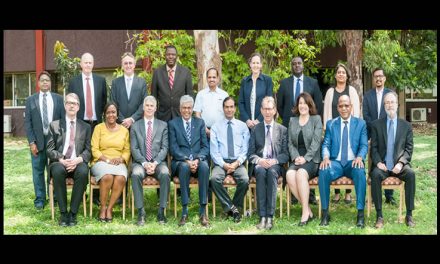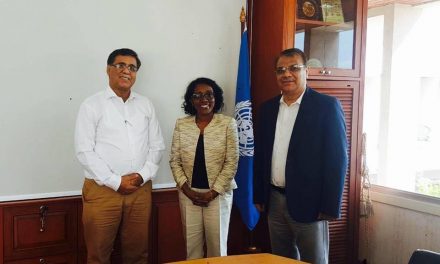Over 30 per cent of 1.75 billion people in South Asia are living in poverty. They face a major challenge of rapid economic growth to achieve the Sustainable Development Goals (SDGs). In South Asia, >95 per cent of agriculturally suitable land is already under cultivation. Hence, there is no scope for horizontal expansion of farming. Therefore, deployment of tools, techniques, practices and strategies aiming at increasing agricultural production, while arresting degradation of soil, water and environment and ensuring their rational use, are essential to meet future food demands in the region. For this, conscious efforts are needed to swap the unsustainable elements of the conventional tillage-based monoculture production paradigm with temporally and spatially highly productive and profitable sustainable intensification. This is possible through large-scale adoption of Conservation Agriculture (CA) as a vehicle for change.
Keeping in view the twin objectives – (i) to have an open dialogue for an assessment of regional priorities and a road map for out-scaling CA-based sustainable intensification (CASI); and (ii) to explore the possibility of having a mechanism/neutral platform for building desired regional collaboration/partnership, a regional dialogue was organized jointly by the Trust for Advancement of Agricultural Sciences (TAAS) and Australian Center for International Agricultural Research (ACIAR), in collaboration with South Asian NARS, International Maize and Wheat Improvement Center (CIMMYT), Borlaug Institute for South Asia (BISA), International Center for Research in the Dry Areas (ICARDA), and Asia Pacific Association of Agricultural Research Institutions (APAARI).
About 90 delegates from various organizations, such as policy makers, NARS leaders, CGIAR centers, advanced research institutions, development officials, private sector representatives, NGOs, donors and progressive farmers, participated in the meeting. The meeting focused on sharing recent advances on CA in South Asia; the current status on scaling CASI; group discussions on policy, knowledge and capacity building, entrepreneurship and business models, as well as policy dialogue on scaling CA.
Dr Rishi Tyagi, APCoAB Coordinator, APAARI, facilitated the policy dialogue on scaling CA. Dr Yusuf Zafar, Chairman Executive, APAARI, offered APAARI’ services for transferring the knowledge on CA amongst various stakeholders in South Asia.
The following recommendations emerged from the meeting:
- Provisions of incentives for farmers for adoption of CA should be made e.g. subsidy allocation to promote CA. New financial system should be developed instead of credit system as usual.
- Institutional arrangements at the NARS level need to be developed in each country, so that farmers’ participation is recognized.
- Knowledge creation is important, but equally important is the transfer of knowledge through regional platforms e.g. APAARI.
- Policy indicators should be developed to assess the impacts of CA.
- Location-specific technologies should be developed with increased investment dedicated to research and adoption of CA.
- The private sector needs to partner with the government to develop extension mechanism of CA technologies, and be encouraged by the governments to manufacture effective machineries and services for smallholder farmers.
- PESTEL (political, economic, social, technological, legal) analyses should be done to harness maximum benefits of CA in each country to avoid any criticism of technology at later stage.
- Each country should develop a country status paper on CA and its impact on livelihood and environmental security. Profitability should be considered not only in terms of individual income of farmers but also be inclusive of economic, social and environmental benefits more holistically.
- APAARI looks forward to other opportunities for regional dialogue in this important area.




